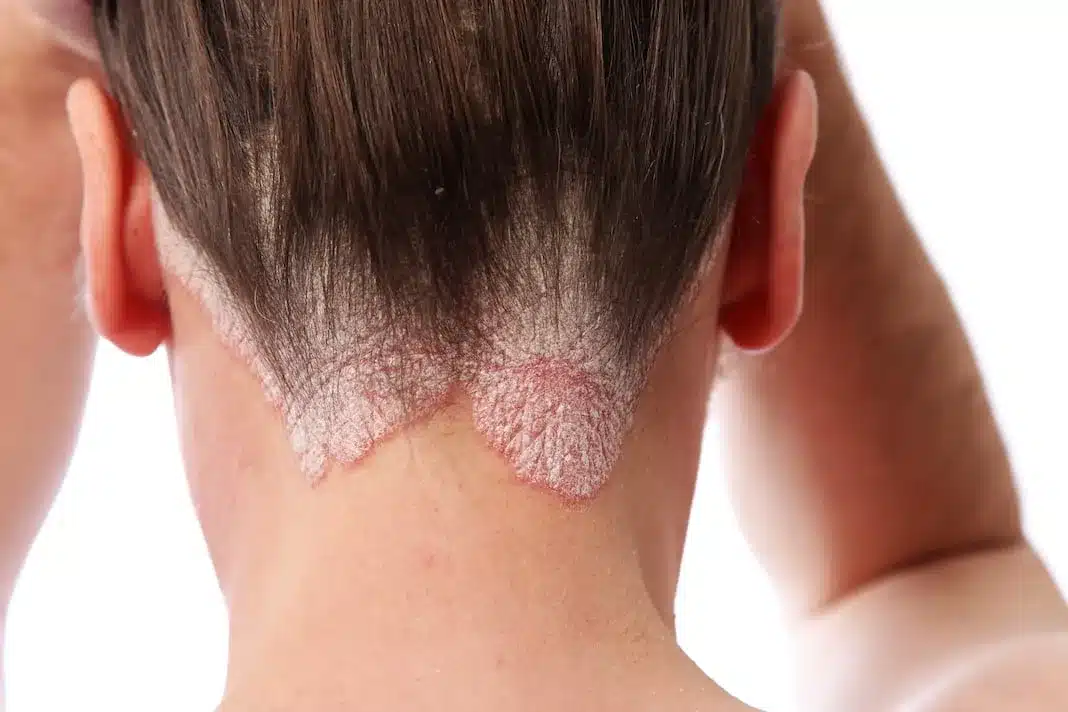August is Psoriasis awareness month and so we sat down with the experts at Skinfluencer to get the lowdown on this condition….
Psoriasis affects around two percent of people in the UK, regardless of age, gender, ethnicity and socio-economic status. It can start at any age, but most often develops in adults under 35 years old, affecting men and women equally.
Contrary to common belief, it is not just a skin condition, rather experts believe it is related to a problem with the immune system, which attacks healthy skin cells by mistake in people with psoriasis. Skin cells are normally made and replaced every 3 to 4 weeks, but in psoriasis this process only takes about 3 to 7 days. The resulting dead cells accumulate on the skin, forming red scaly patches that are itchy, uncomfortable and -very often – sore. Furthermore, the chemicals and cells involved in the inflammation have been found to be not only responsible for these tell-tale skin lesions but also for joint swellings and pain, and can often associated with diabetes, heart disease, joint swellings, inflammatory bowel disease, depression and even cancer. Unfortunately, there can also often be a psychological impact for psoriasis sufferers, with the condition taking a real toll on their self-esteem, especially considering that some people will believe the condition contagious, which is quite simply not true.
The severity of psoriasis varies between sufferers. For some it’s just a minor irritation, but for others it can majorly affect their quality of life. Possible triggers of psoriasis could include an injury to your skin, throat infections and using certain medicines and such triggers can cause the condition to develop, if dormant in the body, or for those already suffering, make the condition worse.
Unfortunately, there’s no cure for psoriasis, but thankfully, there have been ground-breaking treatment options developed in the past twenty years, which can manage the disease very effectively and greatly alleviate symptoms and side effects. The initial treatment step will be the prescription of a topical treatment, such as vitamin D analogues or topical corticosteroids. But if this is not effective, or your condition is more severe, a treatment called phototherapy, which exposes you skin to certain wavelengths of UV light, may be used.
Paid Partnership







